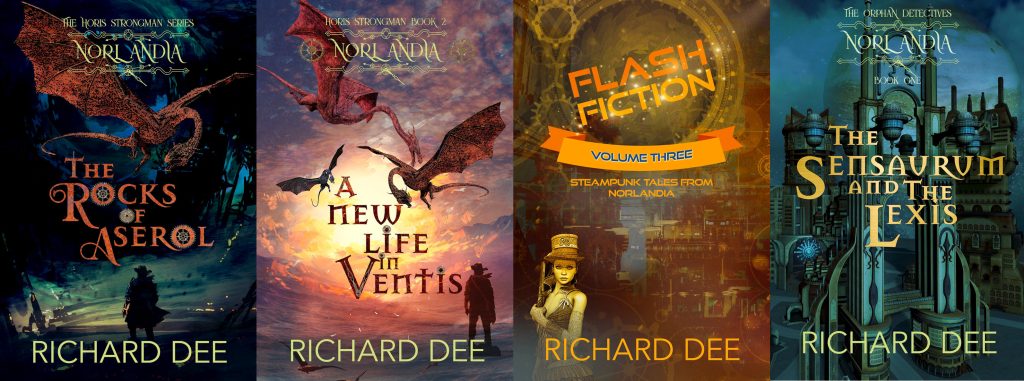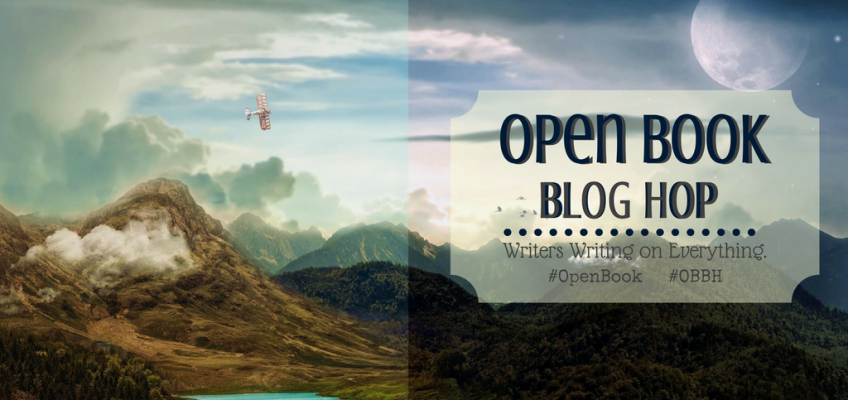Welcome back to another blog hop, with #OpenBook. Here’s this week’s prompt.
Don’t forget to click the purple button to see what everyone else has to say on this week’s subject. It’s at the end of my post.
What is the strangest bit of information you’ve run across while doing research for a story? Or maybe the strangest word?
In researching my Steampunk world of Norlandia, I spent a lot of time immersed in Victoriana. At first, I was only looking for the style of speech and the descriptive conventions of the time. But as time went on, I realised that I wasn’t just creating a Victorian atmosphere. I saw that I was able to do more than write a story.
I was building a whole new world.

But not any world. I wanted to twist things slightly, so that although it was obvious that you were not in Kansas anymore, at the same time you could sense that the world was somewhat familiar.
In Norlandia, Cows are Bovines, a cup of tea is known as char and everything else is called something that a person from the nineteenth century would recognise straight away. You may never have heard it called that, or it might bring back a vague memory. And that’s the plan.
I digress, the question was about strangeness, I’m getting there.
The most fascinating thing that my research showed me was that there is very little that we do today that has to be done the way it is. The reason for so much of how we function as a society is down to ease and cost.
There’s a surprise!!
For example, in our world, refined crude oil is vapourised and used as fuel in engines. This is mainly because oil is plentiful and relatively cheap to process. BUT, if there was no oil, gas could be used in the same way. Yes, it’s more expensive to produce and harder to store but it does the same thing.
And gas can be made from coal, as the Victorians knew (and did).
Electricity is the same, it’s convenient but clockwork power, water-based hydraulic systems and simple mechanics can do many of the things that electricity does. If they were all that were available, devices based on these principles would be refined, polished and so much more efficient than you could imagine.
I also thought was that computers would not be possible without electricity. The work of Charles Babbage and Ada Lovelace disproves that. Electricity merely makes it easier.
Because Norlandia isn’t our world, there are things that they have that our Victorians never managed. Scientific advances that we never made are common, like robotic limbs, controlled by nerve impulses or hydraulicly powered walking robots.
The strangest thing of all is that these ideas, and more, were first dreamt of in the fertile minds of our Victorian forebears. They simply never got around to bringing them to life.
Until next time.

Let me know what you think about this week’s subject.
I’d love to get your comments, please leave them below. While you’re here, why not take a look around? There are some freebies and lots more content, about me, my writing and everything else that I do. You can join my newsletter for a free novella and more news by clicking this link.
Now see what the other blogs in this hop have to say by clicking below.
Check out the other great blogs here.

![]()



Daryl Devore
World building is great fun. And the Victorians were a very interesting era.
Tweeted.
Now for my weekly math question. 🙂
Richard Dee
Thank you. I enjoy the world-building almost as much as seeing the plot come to life.
P.J. MacLayne
The problem with coal is the pollution it produces. It’s expensive to keep the pollution it produces under control.
Richard Dee
Agreed. My Norlandians are not aware of that problem…, yet.
Jack Eason
Good article that man 😉
Richard Dee
Thank you 🙂